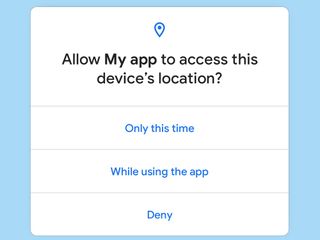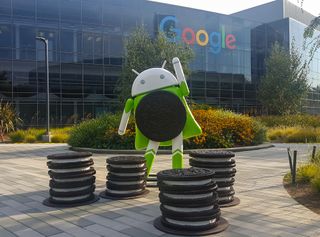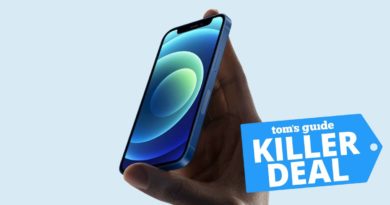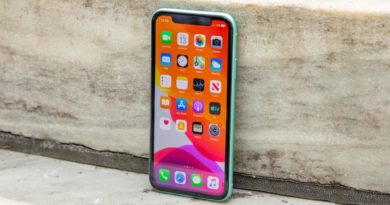Android 11 release date, features, beta program and more
We’ll soon find out what Google is planning for Android 11, the annual update to the company’s mobile operating system for phones and tablets — though we’re going to be waiting a bit longer to find out specific details about Android 11’s new features.
Android 11 is set to arrive later this year, and past updates are any guide, you can expect plenty of under-the-hood improvements and a few new features to make their way to your phone. Already, we’ve seen a trio of developer previews, though most of the changes thus far are aimed more at app makers than at end users.
Google was set to provide a full-on preview of Android this coming week, but now that event has been postponed, leaving us in the dark about Android 11’s promised enhancements. Still, here’s what we know so far about Android 11, including new features and availability.
Android 11 release date
Google released its first developer preview of Android 11 on Feb. 19. That’s pretty early in relation to past Android rollouts — last year, the first beta for Android Q (before it became known as Android 10) debuted on March 13. Of course, that release was a beta aimed at an audience that included early adopters as well as developers. Google has stressed that this Android 11 developer preview is really aimed at app makers for testing purposes and not something consumers will want to install on their every day phone.
Since February, Google has stayed on track with updates to the developer preview. A second developer preview popped up on March 18, followed by the third update on April 23. That puts Google on schedule for Android 11, despite the global disruption to life and work caused by the coronavirus pandemic.
The coronavirus outbreak has had one noticeable impact on Google’s Android 11 plans. Normally, Google uses its Google I/O conference in May to talk up new features in the operating system and release a beta for a wider audience. But Google I/O was cancelled this year as countries look to stop the spread of COVID-19.
A #GoogleIO update: Out of concern for the health and safety of our developers, employees, and local communities — and in line with “shelter in place” requirements by the local Bay Area government — we sadly will not be holding an I/O event in any capacity this year. (1/3)March 20, 2020
Instead, Google was planning to show us what to expect with Android 11 during a June 3 online preview event. Not only was that event going to detail new features coming with the OS update, we were also likely to see a beta release at that time. However, Google says it’s postponing the Android preview, likely in response to ongoing protests in US cities over the death of George Floyd at the hands of Minneapolis police. No date was given for the rescheduled event.
We are excited to tell you more about Android 11, but now is not the time to celebrate. We are postponing the June 3rd event and beta release. We’ll be back with more on Android 11, soon.May 30, 2020
Google’s Android 11 schedule still promises a final release in the third quarter of 2020. That’s in line with recent Android updates. Android 10 arrived on Sept. 3 last year, while Android 9 Pie landed on Aug. 6, 2018. The year before that Android Oreo debuted on Aug. 21. We’d expect Android 11 to get finalized in that August-September time frame.
Android 11 features
Expect a detailed look at Android 11 on June 3 during Google’s online event, where we’re expecting more details than what we’ve seen so far from the developer previews. While release notes for the third developer preview largely highlight bug fixes and developer tools, we’ve been able to glean some information about the consumer-facing features that will show up in the full release based on earlier releases.
Messaging improvements: Google has detailed a number of changes surrounding conversations, suggesting that chat improvements will be a major focus in Android 11. For starters, the updated OS is emphasizing chat bubbles — these will keep ongoing conversations in a handy container that you can tap to access from anywhere on your phone. There’s a Bubbles API in the Android 11 preview, which suggests that third-party apps are going to be able to offer this feature as well.
You’ll also be able to access conversations from Android 11’s notification shade, which is adding a dedicated section for conversations. Another developer tool will let apps with copy and paste functionality add the ability to let users insert images when they reply to messages from the notification shade.

One-time permissions: Android 11 will continue to fine-tune permissions, adding an “Only this time” option that will give apps momentary access to things like location tracking, the microphone and the camera. In this scenario, when you stop using the app, the permission expires. It’s a level of granularity that iOS users already enjoy, so it’s good to see that come to Android.
Android 11 will apparently expand on a feature in Android 10 that allowed users to give apps location data only when they were actively being used. That same feature looks like it’s being extended to the camera and the microphone based on the second developer preview.
Support for new screens: You may have noticed a variety of displays finding their way onto Android devices, from foldable screens to panels with cut-outs for the front camera. Android 11 is adding tools that will let app makers optimize their software for these different displays.
Specifically, Android 11 is gaining the ability to detect the angle of the hinge in a foldable phone, so that app behavior can change accordingly. Think about the Samsung Galaxy Z Flip and its Flex mode, in which the top half of the screen becomes a viewing area, and the bottom half includes app’s controls. It sounds like other foldable phones will be able to support similar features.
5G support: With 5G wireless networks now up and running, Google is taking steps to make sure that its mobile OS is able to take full advantage of the faster speeds and lower latency that 5G promises. A Dynamic meteredness API in Android 11 will be able to check to see if a 5G cellular connection is unmetered; if so, your phone will be able to get higher resolution images and video. Another 5G-related API makes it easier for apps to downstream and upstream bandwidth. In the second developer preview, Google added the ability for apps to detect the kind of 5G network a phone is connected to, so that the phone’s performance can be adjusted accordingly.
Faster screen refresh rates: In Android 11, apps and games will be able to set a preferred refresh rates. That will allow games to take advantage of phones with displays that sport faster refresh rates, which should make for an enhanced gaming experiences.
Improvements aimed at streaming services: More things are streaming these days, including Google’s own Stadia gaming service. In Android 11, the first frame of a stream will appear as quickly as possible once decoding starts, which should improve performance for services like Google Stadia. (Read our Google Stadia review for more info on the service.)
Call screening improvements: Google says it’s adding APIs that will allow call-screening apps to do a better job handling robocalls.
Mandatory seamless updates: Since Android Nougat, Google’s mobile operating system has included a seamless update feature meant to reduce device downtime whenever a software update rolls out. While many phone makers have adopted this feature, others — hello, Samsung — have not. Starting with Android 11, though, they’ll have to, as XDA Developers spotted source code that makes seamless updates mandatory for any device that ships with Android 11.
Android 11 download: Should I get the current version?
Unless you happen to be a developer working on apps that will run on Android 11, you definitely should not. As the list of features makes clear, the Android 11 developer preview is putting the emphasis on under-the-hood improvements, with the major changes right now aimed at providing app makers with tools to get their products ready for Android 11’s final release. If that description doesn’t apply to you, you’re not likely to get much out of using Android 11 right now — and you certainly shouldn’t install the developer preview on anything other than a spare phone or test device.
Even with the postponed Android 11 preview event, it sounds like it won’t be long before more people can download an Android 11 beta that’s a bit more user friendly (though still not in final form).
Android 11 beta program: How to get it
To run the latest developer preview of Android 11, you’ll need to have a Pixel 2 or later. (In recent years, Google opened up the Android beta to other phones besides the ones it makes, but that’s not going to happen until a more stable beta is ready.) From there, you need to download and flash a device system image to your Pixel.
That process is a bit more complex than simply downloading an over-the-air update. You’ll need to make sure that both developer settings and USB debugging are turned on for your target device, and you’ll need to unlock the phone’s bootloader, too. Developers should be able to do all that without any sweat, but it’s not something that regular users are likely to have done before.
Android 11 name: What will it be called?
Old-school Android users — well, those that were around prior to last year — may remember Google’s penchant for naming its mobile operating system after desserts. Prior to Pie and Oreo, we were treated to such names Nougat, Marshmallow, Lollipop and Kit Kat.

That changed with Android Q/Android 10, either because Google wanted to signal a new approach for its mobile OS or because coming up with a Q-named dessert proved too taxing, even for Google’s extensive knowledge graph.
Whatever the reason, the current version of Android is simply Android 10 and there’s no reason to believe Android 11 is going to go back to the dessert naming convention. (If it does, we’re up to Android R.) With Google using Android 11 for its postponed beta launch event name, it looks like the era of dessert names is truly over.


